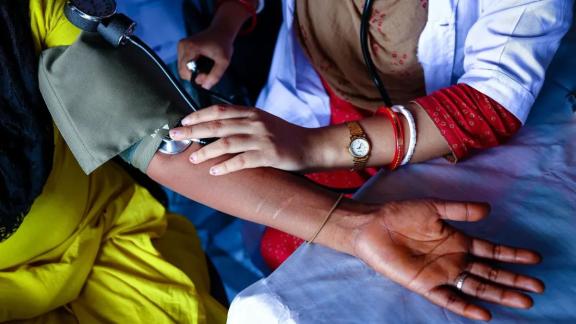A call to center Women Who Use Drugs in Harm Reduction and SRHR
At the 28th International Harm Reduction Conference in Bogotá, a diverse coalition of feminist advocates, community-led organizations, and harm reduction practitioners gathered to confront the systemic neglect and marginalization faced by women who use drugs. Convened by IPPF, AWID, Médecins du Monde, Metzineres (Spain) and SPINN (Indonesia) this strategic dialogue underscored the urgent need for intersectional, feminist responses to drug policy, addressing violence, exclusion, and structural inequality.
Women Who Use Drugs are being left behind
Women who use drugs face layered and interconnected forms of oppression: criminalization, gender-based violence, poverty, racism, stigma, and exclusion from essential services such as housing, childcare, SGBV, [RB1] and comprehensive health care, including sexual and reproductive health and rights (SRHR). They are often the last to be considered in policy and funding decisions, and often not considered at all.
Around the world, harm reduction is largely not gender responsive, and women’s rights are obstructed by the combined oppressions presented by patriarchy and the gendered war against people who use drugs. In many countries, social service workers are still mandated to report women who use drugs who are pregnant and/or with children, violating custody rights and undermining their access to care and support. In others, governments claim marginalized populations do not exist, denying their humanity and visibility altogether.
Economic Justice is Harm Reduction. SRHR is Economic Justice
We cannot speak of harm reduction or SRHR without addressing economic justice. Communities are forced to operate with shrinking resources while global funding continues to bypass grassroots, gender responsive initiatives. Feminist harm reduction recognizes that economic marginalization, lack of housing, food, and income, is a form of structural violence. Capitalism is not an immutable system; it must be challenged.[RB2]
Feminist Harm Reduction is about building community power
Participants in our workshop reflected that they are not just advocating for services but building a movement: a global, feminist, community-based movement rooted in solidarity, intersectionality, and reproductive justice. Women who use drugs, sex workers, migrants, racialized people, and other criminalized communities are not separate issues: we are interconnected, and our struggles are shared.
We call on:
Governments to
- Decriminalize drug use and sex work.
- Ensure[RB3] universal access to community-led, gender-responsive harm reduction [RB4] and SRHR services and resources
- Fund housing, childcare, food, and income programs that address the realities of women who use drugs.
- Recognize and uphold international human rights obligations[RB5] .
- Ensure women who use drugs are at policy and planning spaces where decisions impact our community
Funders and Donors to
- Directly fund community-led initiatives by and for women who use drugs.
- Recognize the feminist principles of agency, equity, and self-determination in funding strategies.
- Support universal income and resource redistribution as tools of economic justice.
INGOs and Feminist Movements to
- Center the voices and leadership of women who use drugs in programming and advocacy.
- Break down silos between SRHR, harm reduction, drug policy[RB6] , and economic justice.
- Build lasting, accountable, collaborative alliances with sex workers, drug users, migrants, and racialized communities.
Women who use drugs, despite facing multiple forms of oppression, are remarkably resilient as experts, organizers, mothers, daughters, workers, and leaders. They are building community families that challenge oppression and reclaim care, dignity, and rights.
when








